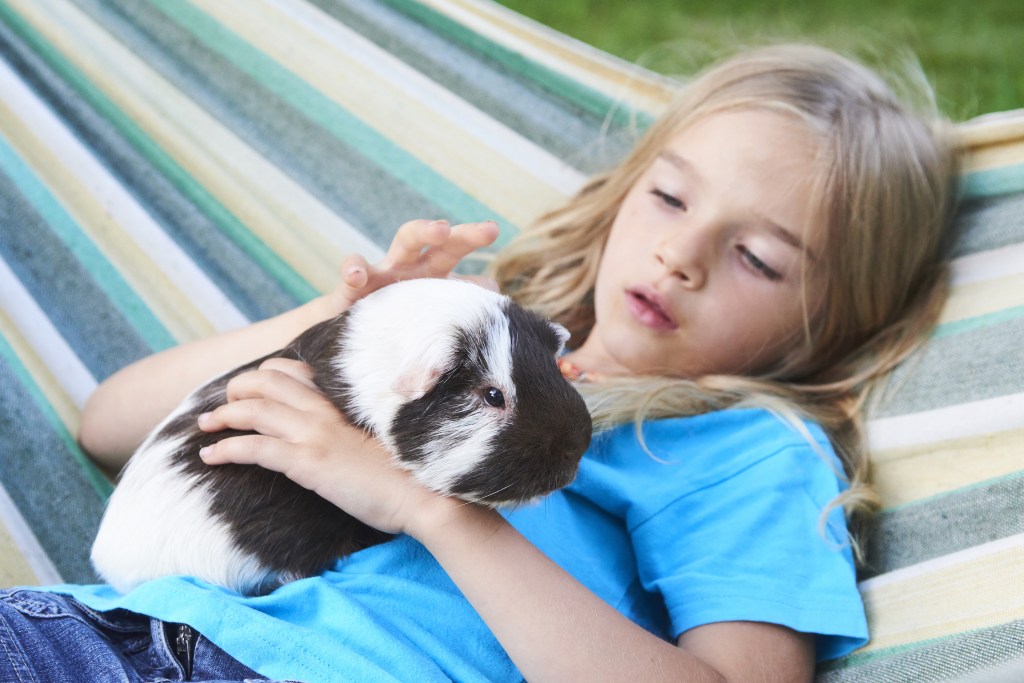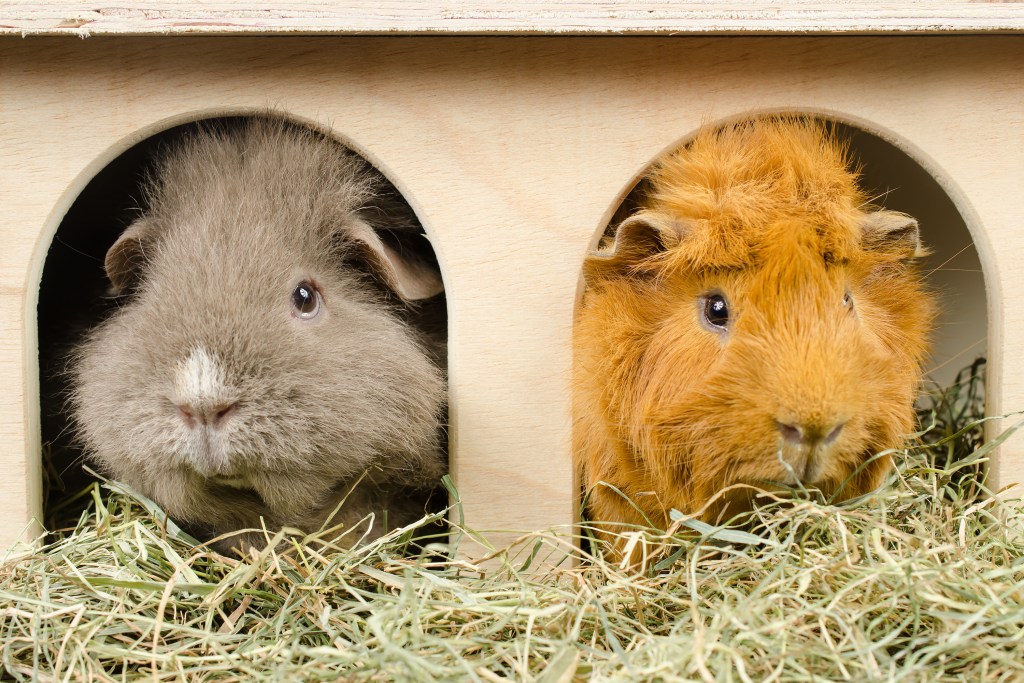Bringing home your first guinea pig comes with all sorts of firsts. You get to watch him popcorn (jump up and down), chatter obsessively, and even purr. That’s right, your little guy will sometimes channel his inner cat to express a wide variety of feelings. That requires you to do a bit of sleuthing and determine the cause for his purring, as it won’t necessarily be apparent what he’s trying to communicate. Still, with a little practice, you’ll learn his language. So what does it mean when guinea pigs purr? It all depends on context.

Why does my guinea pig make a purring noise?
You’ll get a lot of noises from your piggy, including purring, screaming, wheeking, chutting, hissing, and chattering. Some of these are distinctly good, like wheeking, which means your buddy is anticipating something enjoyable, like a meal. On the flip side, hissing is bad—same with chattering, surprisingly a negative thing. Purring, on the other hand, can signal either happiness and contentment or fear and stress. So you’ll have to determine how your guinea pig is feeling by sussing out what’s going on at the moment and by learning his individual cues.
Is guinea pig purring good or bad?
Let’s break down those indicators to your piggy’s present mood. The first thing to listen for is pitch. While a low-pitched purr often indicates happiness, a high-pitched note usually means that your buddy is annoyed. Also, listen for whether the sound is a short and clipped noise (bad) or a long and drawn-out, feline-like murmur (good). Unfortunately, you might get either while you pet your piggy, which is why you should also observe his body language. Check if he’s lying down and relaxed or frozen in place, waiting for his escape. It’s not a lot to go on, true, but with a little practice, you’ll get better at picking up on what he’s putting down.
What is my guinea pig telling me when he purrs?
So now you know how to determine whether your guinea pig’s purr is a good thing or a bad thing, but that doesn’t explain what he’s specifically trying to tell you. These small creatures may be prey animals, but sometimes guinea pigs makes this particular sound as a warning to back off. It’s less likely than a hiss to precede a bite, though it can mean that your buddy wants to stop playing. It could also indicate that something is causing your piggy stress, like a change in environment or the presence of a predator animal. Don’t be surprised if you hear a purr when the family dog sneaks into the room (which is part of the reason we recommend keeping these species separate). However, a guinea pig snuggling in your lap who purrs away while drifting in and out of sleep is definitely content. He’s telling you to keep it up.

How do I know if my guinea pig is happy?
Both wheeking and low-pitched, mellow purring usually indicate that your animal feels great, but you can get even more information from his movements and postures. Anytime you spot your buddy popcorning, he’s ecstatic. You occasionally jump up and down with happiness too, right?
It seems like a lot when you first start to study the sounds that your guinea pig makes—especially for such a small, simple creature. Don’t worry about it too much! While guinea pig language might stump you at first, we bet you will pick up on the vocabulary in no time. The key is to listen closely, paying attention to subtle differences in the pitch and duration of the sound you’re hearing. Pair that with observing your buddy’s body language and being aware of the surroundings and the circumstances at the moment. If a siren is blaring outside or a dog or cat is poking around, you won’t have a lot of trouble figuring out why your piggy is upset. After a month or two, you’ll be a certified guinea pig translator ready to decipher any and all audio and visual cues.
Editors' Recommendations
- A simple guide to what to feed tadpoles in your aquarium
- Is my rabbit pregnant? 5 telltale signs you should know
- 3 reasons not to give pet rabbits, baby chicks, or ducks this Easter
- Are female betta fish worth it? Here’s why you should consider getting one of these pretty fish
- Looking to add corydoras to your aquarium? Here’s what you need to know first




